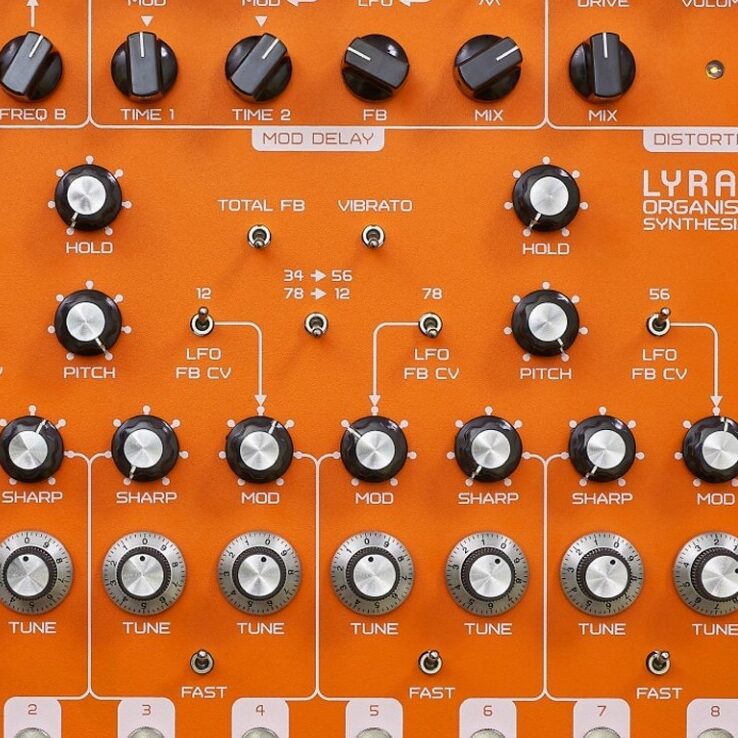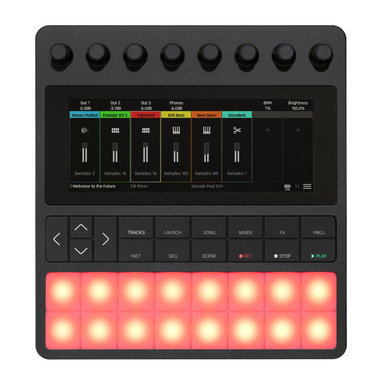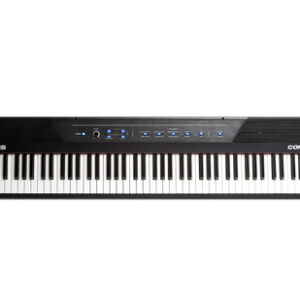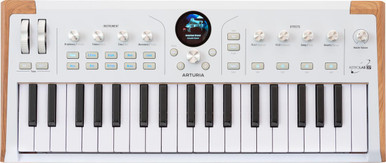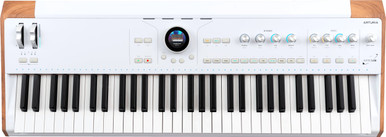Description
The 1010Music Bento is New Delivered to all areas of the UK using our roadie delivery service.
Bento is a portable sampling production lab designed to inspire creativity without the need for a laptop. Compact yet powerful, it combines high-quality sampling, sequencing, and expressive performance tools in one sleek unit. Whether you’re crafting beats on the move, launching live clips, or sequencing your synth setup, Bento provides an intuitive and fluid workflow. Featuring a sharp 7-inch touchscreen, 16 velocity-sensitive pads, and eight endless encoders, it allows precise control over every element of your sound. The device supports a variety of sample types, including loops, multi-samples, granular synthesis, and external MIDI, giving you endless sonic possibilities. With professional connectivity options, including stereo inputs and outputs, MIDI ports, USB-C host and device support, and a built-in battery offering up to three hours of mobile creativity, Bento fits effortlessly into any studio or live rig. Designed to simplify cabling and replace laptops, it’s a versatile companion for both desktop and portable use.
Key Features:
- Expressive Control and Intuitive Interface:
The 7-inch touchscreen, 16 responsive pads, and eight endless encoders provide hands-on, detailed manipulation of samples, effects, and sequencing. - Flexible Sampling and Sequencing:
Supports sample banks, loops, granular, multi-sample, slicer, and external MIDI across eight tracks with scene-based sequencing and multiple editing options. - Professional Connectivity and Portability:
Includes three stereo inputs and outputs, headphone output, dual TRS MIDI I/O, USB-C host/device ports, and an internal battery for up to three hours of use.
Sampling and Performance Capabilities:
Bento lets you capture and manipulate audio with ease. You can quickly record loops synced to a clock, trigger recording by audio threshold, and create perfectly sized loops for live looping. The device supports up to four hours of recording per sample and allows immediate playback. With internal resampling and a powerful effects engine, you can layer sounds and capture spontaneous ideas on the fly. This combination of features makes Bento ideal for producers and performers looking for a streamlined, laptop-free workflow.
Connectivity and Integration:
Designed to seamlessly integrate with your existing gear, Bento offers multiple inputs and outputs including professional-level stereo I/O and MIDI ports. USB-C host and device connections enable smooth communication with other devices, while compatibility with microSD cards allows expansion and storage of unlimited projects. Its VESA mount compatibility also lets you securely attach it in studio or live environments, keeping your setup organised and efficient.
Workflow and User Interface:
Bento’s bright touchscreen combined with pressure- and velocity-sensitive pads makes it easy to interact with your samples and sequences. Eight context-sensitive endless encoders provide precise control over every parameter, while scene-based sequencing lets you organise your tracks intuitively. The extensive modulation system includes LFOs, envelopes, and step sequencers, giving you deep control over your sound design and performance dynamics.
Specifications:
- 8 flexible tracks supporting multiple patch types
- 16 pressure- and velocity-sensitive pads
- 7-inch diagonal touchscreen
- 8 context-sensitive endless encoders
- 3 stereo inputs and 3 stereo outputs plus headphone output
- 2 TRS MIDI inputs and 2 TRS MIDI outputs (Type A & B)
- USB-C host and device ports
- Internal battery with up to 3 hours life in low power mode
- Includes 155 patches and over 5000 sample files
- Expandable storage via microSD card
- 24-bit ADC/DAC for pristine sound quality
- MIDI sequencing, modulation, and control change support
- Compatible with 100 x 100 mm VESA mounts
- Dimensions: 20.4 x 21.8 x 5.1 cm; Weight: 936 grams
